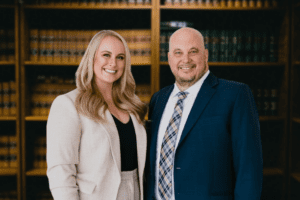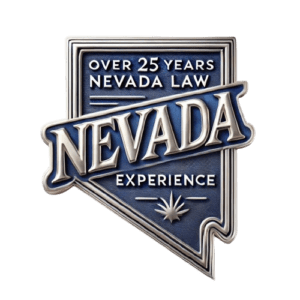How Vicarious Liability in a Las Vegas Casino Impacts Personal Injury Claims
Scenario: A security guard at a busy Las Vegas casino uses excessive force while removing a guest from the premises, resulting in the guest suffering injuries. The guest decides to pursue legal action for compensation.
In this Casino Injury case, several legal principles related to liability come into play, including direct and indirect responsibility, vicarious liability, and strict liability.
Here’s how Nevada law applies to this scenario:
1. Direct Responsibility
The security guard’s actions are the direct cause of the guest’s injuries. Under Nevada law, the guard is directly responsible for their excessive force, which constitutes negligence or intentional misconduct. The injured party could file a claim against the guard individually for damages.
Key Point: Direct responsibility focuses solely on the negligent party’s personal actions.
2. Indirect Responsibility and Vicarious Liability
While the security guard is directly responsible, the casino may also be indirectly responsible under the principle of vicarious liability. This doctrine holds employers accountable for the negligent or wrongful acts of their employees if those acts occur within the scope of employment.
In this scenario:
- The guard was performing their job duties (maintaining order and removing disruptive guests).
- The incident occurred on the casino premises during working hours.
As such, the casino can be held vicariously liable for the guard’s actions because:
- The guard acted within the scope of employment.
- The injury was foreseeable given the nature of the security role.
Key Point: Vicarious liability ensures that businesses take responsibility for their employees’ actions during the course of employment, providing injured parties access to greater resources for compensation.
3. Employer’s Direct Negligence
Beyond vicarious liability, the casino could face direct negligence claims if its own actions contributed to the injury. Examples include:
- Negligent Hiring: If the casino failed to properly vet the guard and hired someone unqualified or with a history of violence.
- Negligent Training or Supervision: If the casino inadequately trained the guard in de-escalation techniques or failed to monitor their behavior effectively.
In such cases, the casino’s direct negligence could compound its liability, separate from vicarious liability.
4. Strict Liability
While strict liability typically applies to product liability or inherently dangerous activities, it would not likely apply in this specific scenario unless the casino engaged in an activity considered hazardous by law. For example, if the injury had occurred due to unsafe security equipment (e.g., defective handcuffs or malfunctioning surveillance systems), strict liability might come into play.
Key Point: Strict liability focuses on responsibility without the need to prove negligence or intent.
5. Independent Contractor Defense
The casino might attempt to avoid vicarious liability by arguing that the security guard was an independent contractor rather than an employee. Nevada law generally does not hold employers liable for the actions of independent contractors unless:
- The employer retains significant control over the contractor’s work.
- The task involves inherently dangerous activities.
If the security guard was directly employed by the casino, this defense would not apply.
6. Comparative Negligence
Under Nevada’s comparative negligence rules, the casino might argue that the guest’s own actions contributed to the incident. For example, if the guest was intoxicated, disruptive, or physically aggressive, the casino could claim the guest shares some fault.
If the guest is found to be 50% or less at fault, they can still recover damages, but the compensation would be reduced proportionally to their level of responsibility.
Legal Outcome: Potential Liabilities
- The Security Guard: Directly responsible for using excessive force, liable for damages.
- The Casino: Indirectly responsible under vicarious liability for the guard’s actions and potentially directly liable for negligent hiring, training, or supervision.
- Comparative Negligence: Could reduce the guest’s compensation if their actions contributed to the incident.
Practical Implications
For personal injury victims:
- Broader Compensation Options: Pursuing vicarious liability against the casino provides access to greater financial resources and insurance coverage than suing the guard alone.
- Proving Fault: Demonstrating the guard’s negligence and establishing the casino’s connection through employment records and training policies is critical.
For businesses:
- Preventative Measures: Casinos and similar establishments in Las Vegas must implement rigorous hiring practices, effective training programs, and robust employee supervision to mitigate risks and avoid liability.
Multiple Layers of Liability
This case study illustrates how multiple layers of liability—direct, indirect, vicarious, and even strict liability—interact under Nevada law. The doctrine of vicarious liability plays a critical role in ensuring injured parties can recover fair compensation, particularly in complex environments like Las Vegas casinos. Businesses must recognize the importance of proactive risk management to minimize exposure to such claims.
Protecting Your Rights After an Injury in a Las Vegas Casino
Understanding how vicarious liability in a Las Vegas casino applies can make a significant difference in pursuing a personal injury claim. Whether it’s a security guard’s actions or another employee’s negligence, holding the right parties accountable is essential to securing fair compensation. At the Law Offices of Kevin R. Hansen, our experienced attorneys are here to help you navigate Nevada’s complex liability laws and fight for the justice you deserve.
Call Kevin
If you’ve been injured in a Las Vegas casino, don’t wait—schedule your free consultation today and let us help you protect your rights and maximize your compensation.






Hansen and Harmon
Legal Team at the Law Office of Kevin R. Hansen
The legal team of Hansen and Harmon have decades of experience in personal injury law. We are committed to delivering personalized, aggressive representation for every client in Las Vegas.

